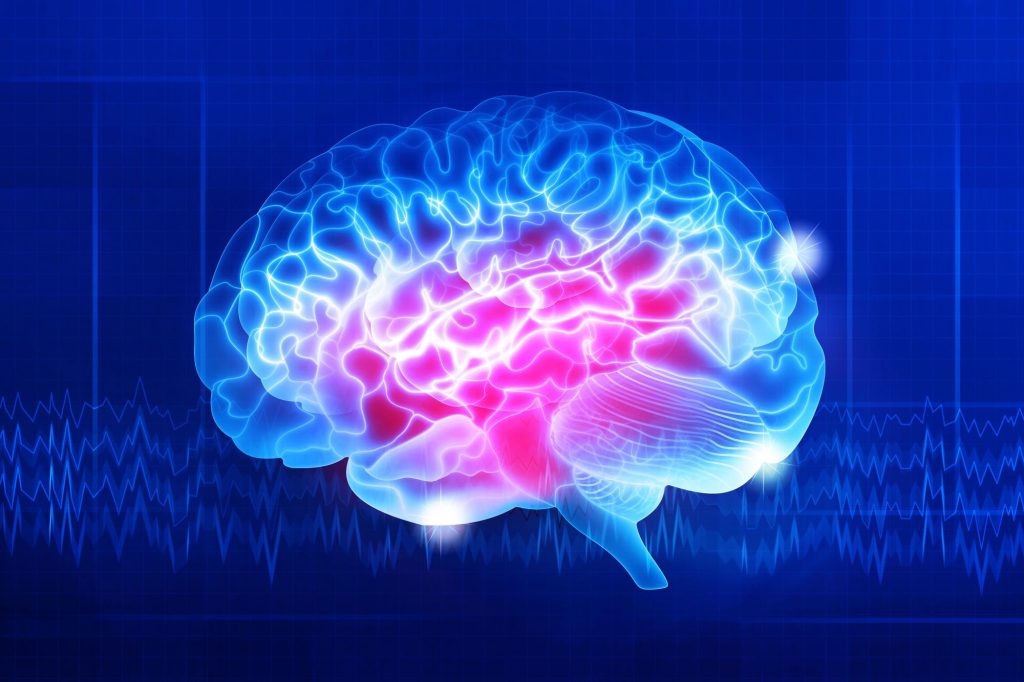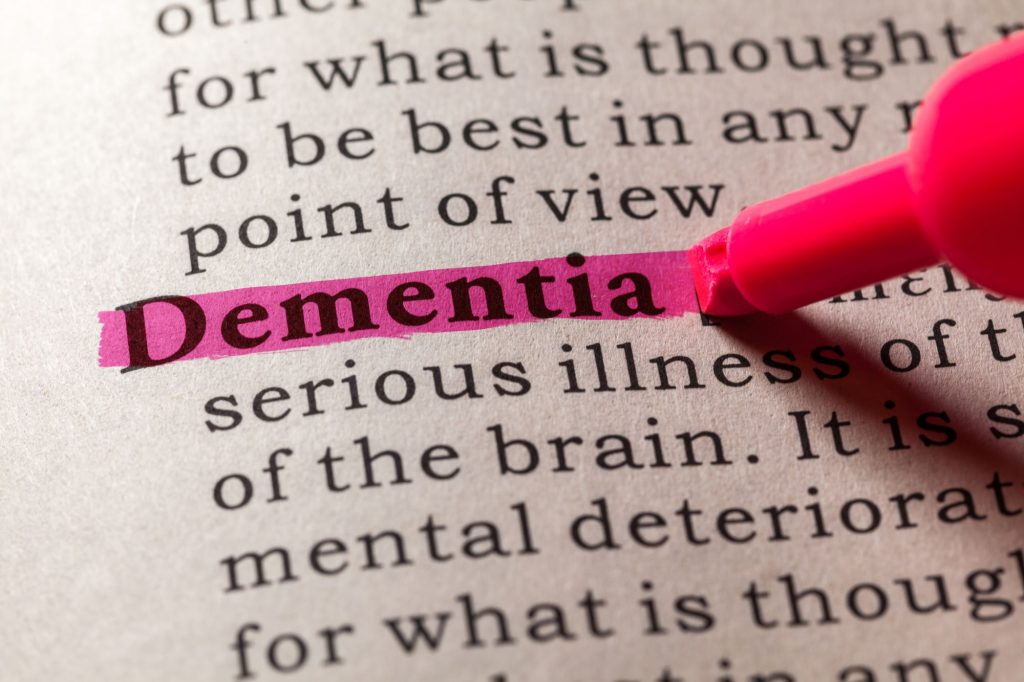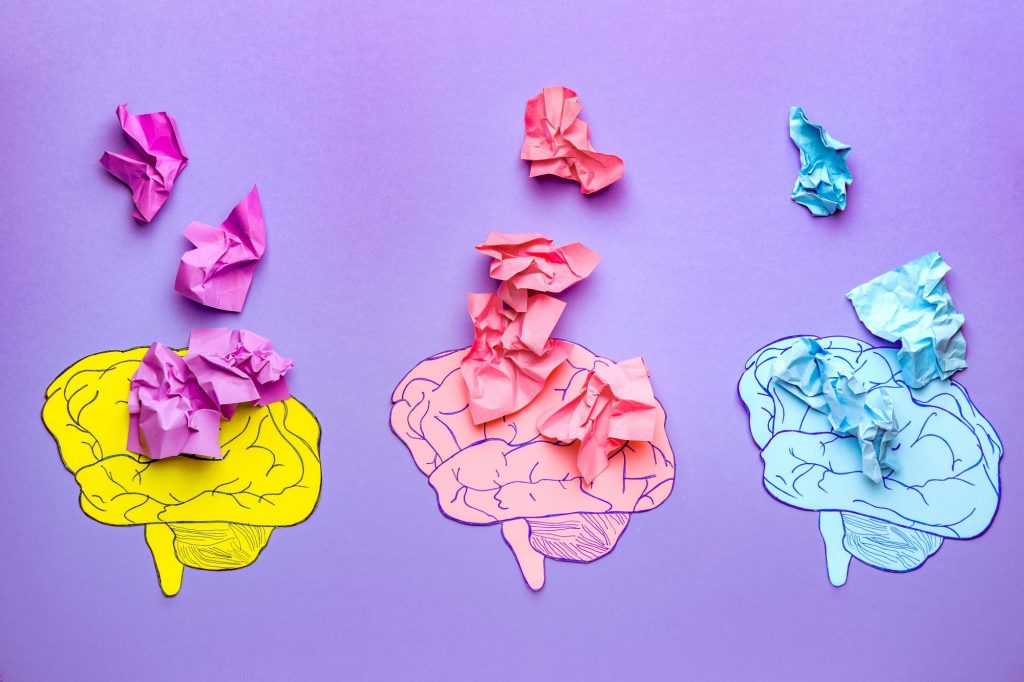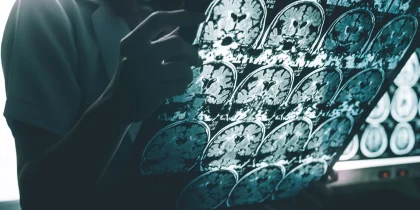What’s the Difference Between Dementia and Aphasia?

Dementia and aphasia. These two conditions are often confused with one another, but they affect the brain in different ways. Both can make it harder to think clearly and communicate, but dementia affects memory and overall thinking, while aphasia specifically affects a person’s ability to use language. In this guide, we’ll break down the key differences between these conditions to help you understand them a little better.
What is Dementia?

Dementia is not a single disease, but more an umbrella term encompassing various symptoms of cognitive decline that can severely interfere with daily life. Alzheimer’s disease accounts for the majority of dementia cases, but other conditions can also lead to these symptoms. Some more of the most common forms of dementia you’ve probably heard of are:
- Vascular dementia: This type is caused by problems with blood flow to the brain, often due to strokes or mini-strokes.
- Lewy body dementia: This dementia involves abnormal protein deposits in the brain called Lewy bodies. It can cause symptoms like movement problems, hallucinations, and fluctuations in alertness.
- Frontotemporal dementia: This type affects the frontal and temporal lobes of the brain, which are responsible for personality, behavior, and language. Symptoms can include changes in personality, difficulty with language, and problems with judgment.
Dementia Diagnosis

Diagnosing dementia involves a thorough evaluation of cognitive function, including tests that assess memory, reasoning, and attention. Medical professionals use questionnaires, scans, and medical history to reach a diagnosis. Here’s a general overview of how the diagnosis process works:
- Medical History: The doctor will ask about overall health, medications taken, and any past injuries or illnesses that could affect brain function.
- Family History: Knowing if dementia runs in your family can be helpful.
- Cognitive Assessment: This might involve a series of questions and tasks to evaluate memory, thinking skills, language abilities, and problem-solving. Common tests include the Mini-Cog or the Montreal Cognitive Assessment (MoCA).
- Blood Tests: These can check for vitamin deficiencies, thyroid problems, or infections that might mimic dementia symptoms.
- Brain Imaging: Scans like CT scans or MRIs can help identify strokes, tumors, or bleeding in the brain that could cause similar symptoms.
- The doctor will consider all the information gathered, including test results, medical history, and your performance on cognitive assessments.
- There’s no single test for dementia, so doctors rely on a combination of evidence to make a diagnosis.
- Sometimes, additional tests like lumbar punctures (spinal taps) might be needed for a more definitive diagnosis, especially in earlier stages.
- Staging Dementia: If dementia is diagnosed, the doctor will also stage it based on the severity of symptoms. This helps determine the best course of treatment and support.
What is Aphasia?

Aphasia is a communication disorder caused by damage to specific areas of the brain responsible for processing language. This damage can significantly impair a person’s ability to speak, understand spoken language, read, and write. It’s important to remember that aphasia does not affect a person’s intelligence.
Causes of Aphasia
While stroke is a common cause of aphasia, it’s not the only one. Head injuries, brain tumors, and even certain progressive neurological diseases can also lead to aphasia.
Aphasia Diagnosis

A speech-language pathologist (SLP) diagnoses aphasia through language testing. This may include naming objects, following commands, and reading and writing exercises. SLPs don’t use a one-size-fits-all approach. They design the assessment based on the suspected severity and type of aphasia. Here are some common types of tests used to diagnose aphasia:
- Spontaneous Speech: The SLP will have a conversation with the patient to observe their fluency, grammar, and word choice. They might ask questions or tell stories to see how the person expresses themselves.
- Comprehension: This can involve tasks like following directions, answering questions with yes or no, or pointing to objects based on verbal cues.
- Naming: The SLP might show the person objects and ask them to name them. This assesses their ability to retrieve words from memory.
- Repetition: Repeating spoken words or phrases tests how well the person can process and produce language sounds.
- Reading and Writing: These tasks assess the ability to understand written language and express thoughts through writing.
- Sometimes, SLPs might use more specialized tests that target specific language skills like grammar or sentence structure.
- Picture description tasks can reveal how well the person can describe what they see and use language to convey information.
Dementia Vs Aphasia

Dementia typically has a gradual onset, with memory loss and cognitive decline worsening over time. Aphasia, on the other hand, usually occurs suddenly after a brain injury. Its severity and progression depend on the cause and individual response to treatment.
Both dementia and aphasia result in cognitive impairment, but their nature differs. Dementia affects multiple cognitive functions, while aphasia specifically targets language skills, leaving other cognitive abilities intact.
Treatment plans also differ. While dementia has no cure, interventions and medications can manage symptoms and address underlying conditions to slow progression. Aphasia treatments focus on speech therapy and techniques to improve language function and communication skills.
Read Next: Talk Show Host Wendy Williams, 59, Diagnosed with Primary Progressive Aphasia
Support for Seniors with Dementia or Aphasia

Numerous support networks, resources, and therapies exist for seniors diagnosed with dementia or aphasia and their caregivers. Besides your primary healthcare provider, here are some places to look for additional support:
Alzheimer’s Speaks Podcast on Senior Resource
Alzheimer’s Disease International
The National Aphasia Association
The Aphasia Community – Support Group Finder
Popular Articles About Alzheimer's and Dementia
Originally published April 03, 2024








